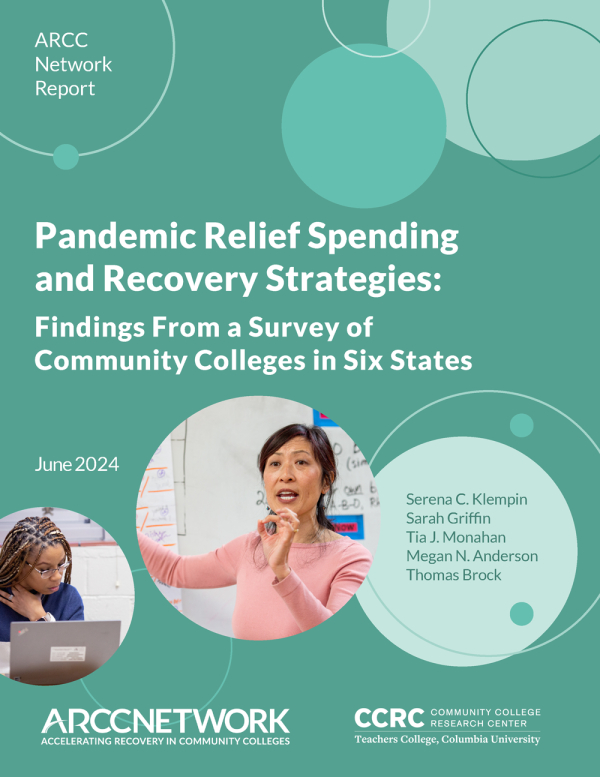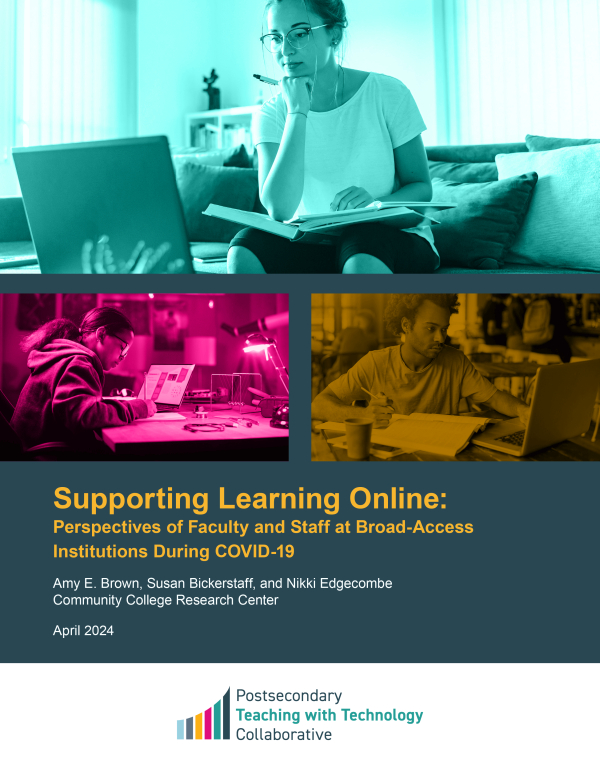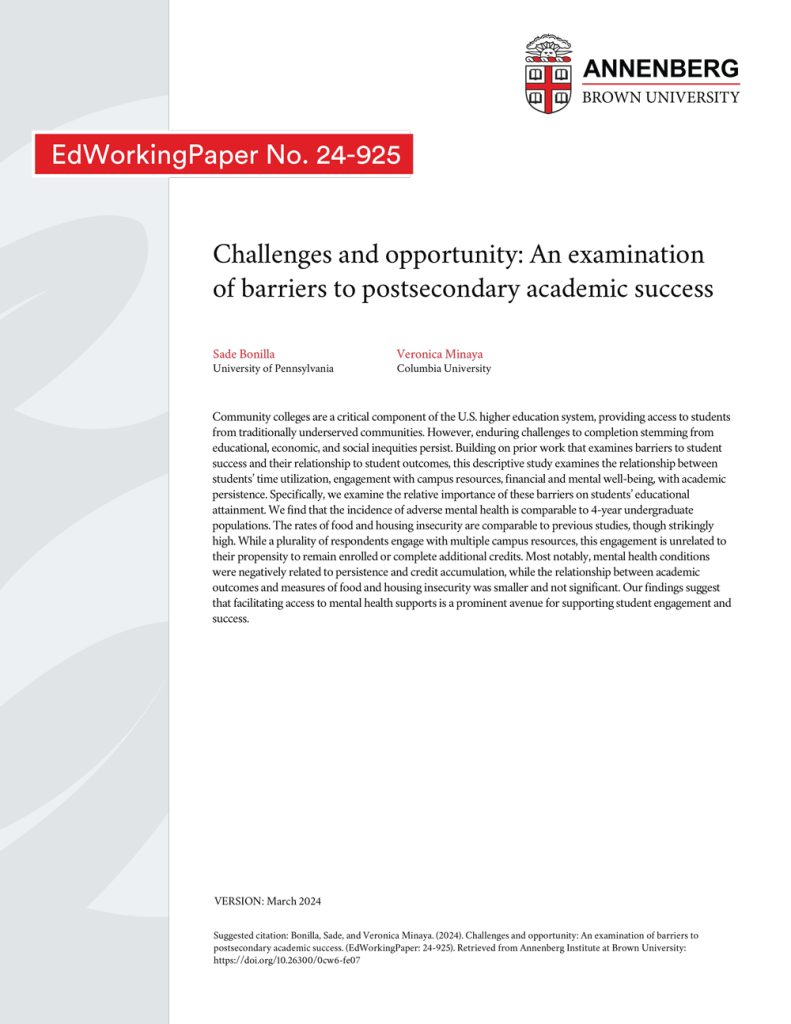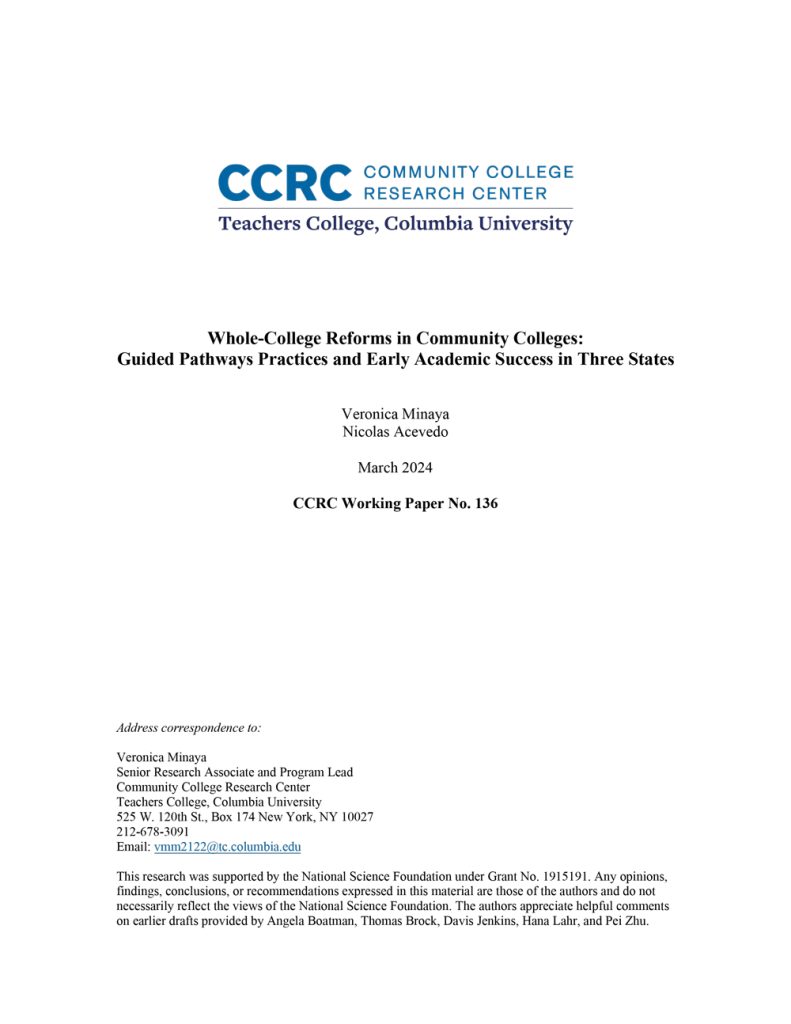Pandemic Relief Spending and Recovery Strategies: Findings From a Survey of Community Colleges in Six States

This book chapter explores the personal support networks and help-seeking preferences of immigrant-origin, first-generation-in-college students (FGCS) as part of a three-year longitudinal mixed-methods study with FGCSs at four public Hispanic-serving institutions in California.
Supporting Learning Online: Perspectives of Faculty and Staff at Broad-Access Institutions During COVID-19

This Postsecondary Teaching with Technology Collaborative report examines how faculty and staff at nine institutions reconsidered students’ online learning needs in the midst of the pandemic, and it explores how supports were offered to help students strengthen their self-directed learning skills.
Challenges and Opportunity: An Examination of Barriers to Postsecondary Academic Success

This Annenberg Institute working paper examines the relationship between community college students’ academic persistence and their time utilization, engagement with campus resources, and financial and mental well-being, as well as the relative importance of these factors for students’ educational attainment.
Developmental Education Reform as a Civil Rights Agenda: Recent History & Future Directions for California

This paper describes research that prompted developmental education reform, explores efforts in California that led to the passing of A.B. 705, summarizes research on its implementation and outcomes, and discusses the implications of this research for improving postsecondary access and success.
Whole-College Reforms in Community Colleges: Guided Pathways Practices and Early Academic Success in Three States

Using institutional survey and administrative data, this paper examines the association between statewide adoption of guided pathways practices by community colleges in Tennessee, Ohio, and Washington and improvements in first-year student outcomes.
